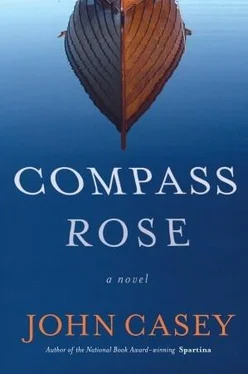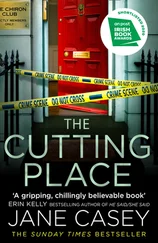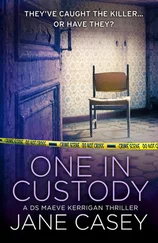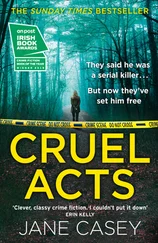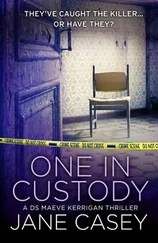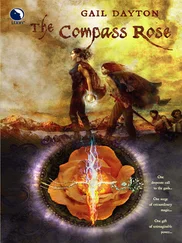“Two-thirds of what Jack Aldrich is offering. And my guess is he hasn’t completely untied his purse strings. I would do it; I’d do it tomorrow.”
Mary began to laugh. She said, “If I’ll go in on it. Do I just guarantee your mortgage, or do I get to move in?”
“Move in.”
“With you.”
“With me.”
“So we’ll have a candlelit dinner tonight, throw ourselves into bed, and first thing Monday morning we’ll seal our vows in front of a mortgage-loan officer at the Wakefield Trust.”
“Are you making fun of the idea as a way of saying no, or are you making fun of the idea as a way of getting used to it?”
“Have all your affairs with women been on such firm financial grounds?”
“Not when I was younger. I was married for eleven years.”
“Any children? Wait — don’t tell me. We may need something to talk about during the long winter nights.”
She was enjoying herself. She thought she should have been horrified, but she liked that he’d come unraveled. She also liked that there was no one she would ever tell this story to, however it turned out.
The sun had sunk low enough to be pouring though the west windows, raising the temperature and a stuffy smell. She went out to the back porch, where there was a light breeze, just enough to make the porch swing sway on its chains. She sat on it and began to push herself back and forth with one foot.
He came out and said, “Well, how would you have done it?” She laughed and shook her head. He sat down on the porch step and stared at the ground. He said, “I know what it is. It’s money. I can’t even talk about it. It makes me shy. And then that makes me go nuts.”
“You’re not broke, are you?”
“No. I have a brother who takes care of my money, the family money, such as it is. He’s younger than I am, but he’s a lawyer. I asked him if I could buy a house, and when I told him how much, he said I shouldn’t aim so high.”
“So you thought of me.”
“No. I thought of you before. If he’d have said, ‘Go ahead, you’re rolling in dough,’ I’d have laid it at your feet.”
“Your brother — you get along with him?”
“Oh, yeah. There’s no arguing with him, but he’s the right man for the job. My sisters and I would have pissed it all away. I would have invested in plays, none of which made a dime. I suppose I could have pressed a little, but aside from the fact that talking about money seems to puree my brain cells, I’d have felt bad poking at him after all he’s done. He arranged college loans for my two daughters, for my sisters’ kids, too. He does our taxes, does something smart about everyone’s old age. Of course, he has a lawyer’s mind — always thinking about what could go wrong.”
“So how do you live? Do you teach? You sometimes sound like a teacher.”
“Used to. I gave that up once I was through supporting a wife and two girls. Now I just scribble away; some of it makes lunch money. When things get tight something turns up — a book review, a theater review, someone wanting help with a script. I used to do advertising jingles, but I was walking down the hall at the end of a day and I passed this guy’s office. He was talking on the phone; he said, ‘Hey, if you’re stuck you can always call Callahan. He’ll give it some fizz.’ Then he laughed and said, ‘And he works for peanuts.’ Pissed me off. Pissed me off enough I jumped right over my neurosis about money. I sent in a bill for a thousand bucks. They paid it. That pissed me off even more — made me think of all the times I’d got peanuts. Pissed me off so much I never went back. I thought, Well at least I’m over that neurotic tic about money. But it was just on vacation. When it occurred to me to send the check back, I couldn’t find it. Turned out I’d cashed it. After a while it came back to me. I’d paid cash to get my car fixed. Okay, but what about the rest of the dough? Then the weather turned cold and I went to get my overcoat, and next to it was this other overcoat, this great big Irish tweed thing the size of a tent. The label said, ‘As woven for the sporting princes in the days of Irish kings.’ I mean, you don’t fall for that sort of blather without remembering it. It was as if someone had slipped me a Mickey. It’s worse when I have to deal with money and people I don’t like. It’s not as bad when I’m with guys I get along with. Like this musical with Rose — if that gets picked up, I’ll make a few bucks out of it and I won’t go haywire.”
“You mean you didn’t get paid anything up front?”
JB, who’d been perking up a little — though still looking at the backyard rather than at her — slumped. “That’s just what my brother said.”
Mary laughed. She tried to stop. She tried to stop because she doubted she could explain to him that she was laughing at herself, at how she’d been thinking of him as a font of knowledge, a master of the world and good fortune, and herself as girlish and unsteady. And here she was old enough to know a good thing was never as grand as it seemed at first.
“Anyway,” he said. “That’s why I mixed up everything and it came out … half-baked? Raw? Would you say raw?”
“Underdone and overdone. But never mind all that now. We’ll catch our breath and see where we are in the morning.”
Wasn’t this the way she’d been with men in the old days — feeling excitement, feeling herself the lesser, and then having to be Wendy for some oversized Peter Pan? She gave that game up in her mid-thirties. She’d thought she was old then. She felt younger now. Was that in spite of or because of her years with Rose and Elsie? Perhaps she wasn’t feeling young at all, just weightless. The last thing she’d said to them, God help her, was that she’d bang their heads together. The words had flown out of her crazily, more in anguish than in anger — an explosion as inevitable as the bursting of a milkweed pod, each of them blown out and up in separate arcs. Only weeks ago, but it seemed it was on the other side of a break in time. But the cruelest trick of time was how it rushed you by the good parts. As soon as Rose had got so much of what Mary wished for her, became so like the girl Mary hoped she would be, all those wishes and hopes, having spent years in the future, gave off one spark in the present and passed into memory. A minute ago she’d been laughing. It served her right. Yes, he’d been gruff and brusque, then bumbling, and finally ending up flailing like a beetle on its back trying to get right side up. She’d poked him and laughed, fairly tortured him with her cross-examining.
She said, “Come on, then. Come sit on the swing with me. You’ll be better off here than sitting down there staring at your shoes.”
One thing he did nicely — he didn’t push off too hard, just a brush of his foot in time with hers.
The sun sank low enough to take on its first stripe of red. The shadows of the stone wall and the scrub cedars grew longer.
This slowness was an unlooked-for relief. The time with Rose that had stung her near to grief was inside her — out there, time was moving more peacefully, a slow slip of the land through its veil of changing light.
Her first thought when she came to was that he had the sense to let her be.
When she was reduced to one word it was thorough .
He came through the window headfirst and pulled his body into the room, walking his hands along the floor. He ended up full-length at her feet. So far, it was her idea. She could laugh it all off. She could help him get up and see what happened when they put their hands on each other. She was pleased for the moment to turn the idea in her mind, register the flush of her skin against her second thoughts. But during the time he lay there without moving — perhaps only seconds — the room seemed to tilt toward him. He got to his feet and pulled the ladder up, carefully folding it into the window seat. He closed the lid, looked out the window. He said, “There’s our bikes out front.” He pulled the window down and said, “I guess that’s okay.”
Читать дальше
